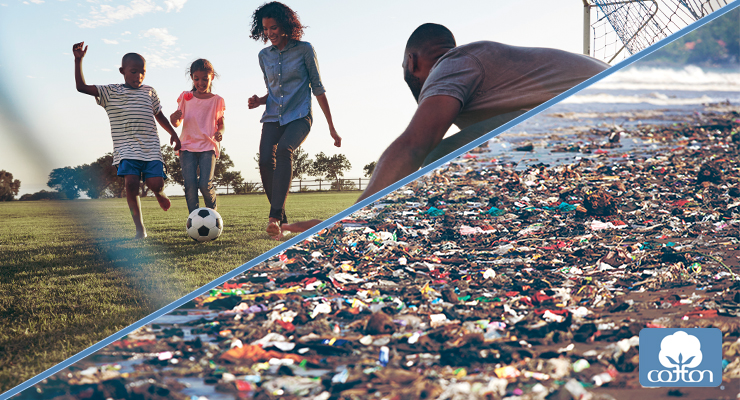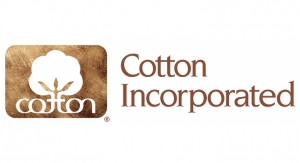An Environmental Issue
Our world continues to search for ways to protect the environment, and conscious efforts are being made through government policies to further the cause. One example is the European Union (EU) Single-Use Plastics Directive1,2. The new directive has the nonwovens industry searching for materials for wipes and other absorbent hygiene products that are plastic-free. Many of these products currently contain oil-based synthetic raw materials that accumulate on land, in small waterways, and in large marine environments.
As the details and implementation of the EU Single-Use Plastics Directive move forward, companies are already developing plastic-free solutions. Certification bodies in Europe, such as TÜV AUSTRIA Belgium and their Green Marks certifications, are providing ways to substantiate products are plastic-free. These certifications are based on a series of standardized tests to determine how products interact with our natural environment.
Cotton: Safe for the Environment
Purified cotton (scoured and whitened) and natural cotton (containing natural oils and waxes) were both put to the test by Organic Waste Systems (OWS) testing labs.3 Seven tests were conducted to measure the compostability and biodegradability of cotton in different environments, as well as heavy metal content and toxicity to marine microorganisms. Both purified and natural cotton passed every test with flying colors and are poised to earn five Green Marks OK certifications: OK compost INDUSTRIAL, OK compost HOME, OK biodegradable SOIL, OK biodegradable WATER, and OK biodegradable MARINE. These certifications validate cotton as plastic-free and in line with the developing EU regulations for single-use products.4
Cotton: Safe for Sensitive Skin
Plastic-free testing is not the only testing cotton has now been through. In 2019, Cotton Incorporated partnered with Product Investigations, Inc. to determine if purified and natural cotton were both safe for sensitive skin. Over 200 participants were tested using the Human Repeat Insult Patch Test (HRIPT) and the results were conclusive: none of the participants exhibited any reactions on their skin for a total of ZERO irritation responses.5

A Trusted Fiber
When designing our absorbent hygiene products, we should be taking environmental impact and consumer health and safety into account. That’s why we can look to cotton as a trusted fiber that meets
our needs. Cotton’s hypoallergenic and plastic-free properties may help us tackle the many challenges we face today.

To learn more about what cotton can bring to your products, visit cottonworks.com/nonwovens.
Sources: 1“Directive (EU) 2019/904 of the European Parliament and of the Council of 5 June 2019 on the Reduction of the Impact of Certain Plastic Products on the Environment.” Official Journal of the European Union, vol. 62, no. L155, 12 June 2019. eur-lex.europa.eu/legal-content/EN/TXT/PDF/?uri=CELEX:32019L0904.
2“European Strategy for Plastics.” European Commission, ec.europa.eu/environment/waste/plastic_waste.htm.
3“Biodegradability, Compostability & Ecotoxicity (BCE).” Organic Waste Systems (OWS), www.ows.be/lc_divisions/biodegradability-compostability-ecotoxicity-bce/.
4Cotton Incorporated 2020 OWS Testing Program for Certification of Cotton Fibers and Substrates.
5Cotton Incorporated 2019 clinical trials on Determination of the Irritating and Sensitizing Propensities of Mechanically Cleaned and Purified Cotton on Human Skin.



